
 Landshare is a concept we’ve been excited about for a while. It addresses the huge (and getting huger) issue of land access in an immediate, accessible fashion.
Landshare is a concept we’ve been excited about for a while. It addresses the huge (and getting huger) issue of land access in an immediate, accessible fashion.
In short, people with spare land can offer that land to people who want to grow stuff. That stuff might be vegetables, herbs, cows, chickens, trees or anything else you can think of. The reasons they might want to grow stuff might be for personal food supply, or for a small commercial venture. It doesn’t matter. The point is this: to share the land, for the ultimate benefit of all.
We’re coming up against the need for land access more and more often at Milkwood, mostly through our education work. Every permaculture course we do, whether it be in the city, or out at our farm, involves an impassioned discussion about how to get access to land to grow food on a domestic scale, or to try out farming before taking the plunge and investing in land.
You already know and care about food security, the need for local food networks and all the rest, I’m sure. And we all love and support our community gardens, wherever we are. But this Landshare concept is the next step, in a sense. It’s time to get truly and utterly productive.
The concept of the commons remains strong in our cultural consciousness, i think – even though, for most folks of European descent, our ancestors were forced to recede their rights to the commons with the onset of enclosure in the 18th century and beyond.
We no longer expect to have access to enough land to grow all the food our community needs in our immediate vicinity. We would like a little piece, if we can, but it’s not something we demand as a community. Not yet.
These days we seem to have focused on other aspects of our common wealth which should never be allowed to be owned outright by a company – things like seed sovereignty, biodiversity in the form of plant genetics, and our own bodies.
But a stable, local and ethical food supply remains central to all our futures. We all want to encourage it, but how, and where, do we actually make it happen? Can we fast-track the solution? Is there a way forwards without having to wait for the slow mechanisms of local council and government to allow us the funds, the time and the space to get growing? Can we do it now?
Landshare, and any scheme like it, functions on the simple yet very powerful concept of encouraging and enabling people to share land for all the right reasons: to grow food, to create community, and even to provide right livelihoods in the form of small-scale, intensive food production plots. Anyone can be involved, and they can start right now.
You can elect to share your front lawn, your back yard, your spare block, or half your farm. The agreement and arrangement you make with the sharee (is that a word?) is up to the both of you – the land can be gifted, rented or bartered.
The land user could give a proportion of the produce back to the land owner, or to 5 families in that street, or whatever you both decide is a reasonable arrangement. And the lease could be for one season, a year, or for three-score and ten.
The Landshare model was first released in the UK and is now spreading throughout the world. The UK site is a hub of gardening information and also provides templates for things like contracts and such for people to use, so everyone involved in the share is clear on what the terms of engagement are.
At this point I hope you’ll be most excited when i tell you that Landshare Australia is up and running, and you can join up whenever you like. You can create forums, blogs and ask questions about growing things, find land, find sharers, and generally get involved in what we hope will be an amazing resource.
You can register as someone with land to share, someone wanting land, or as someone who wants to help out on a landshare project. You can also offer or source resources like mulch, or compost, or tools or skills.
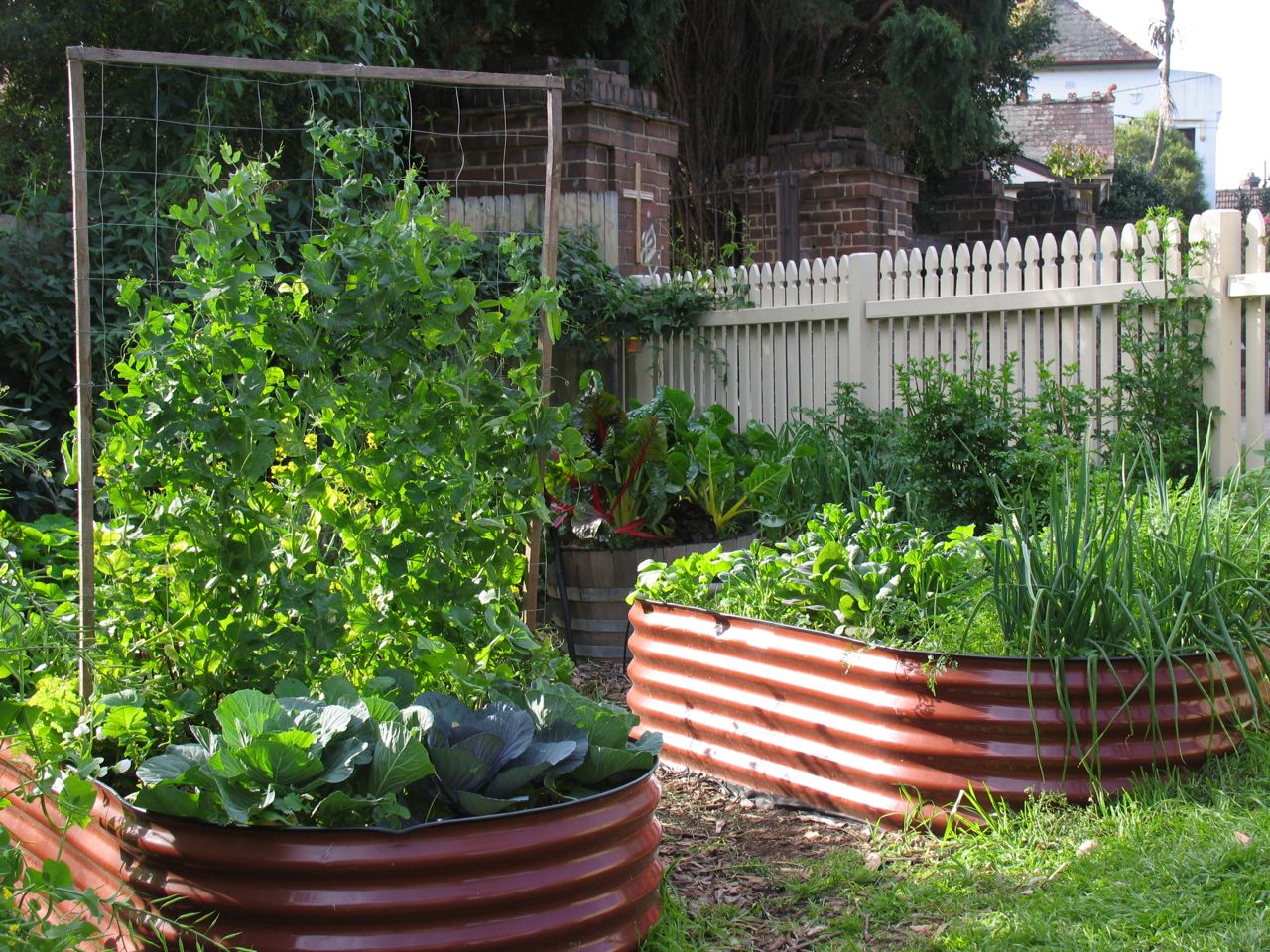
Food production can be funky, and dog-proof too. Who wouldn’t wan their front yard to look like this!
Some urban land use ideas you may not have though of:
- negotiating to utilize 5 front yards in the one street and starting up your own micro-farm.
- band together with friends and create a small urban CSA based on front or backyard growing spaces
- finding 3 terraces with south-facing (shady, sometimes wet) side lanes, and starting up a small mushroom propagation enterprise.
- utilising a concrete area in an industrial estate for a small (or large) aquaponics system.
- finding a rooftop with access in the city and setting up some warré beehives. The minute you pay the building owners in rooftop honey, they will be sold for life.
- Approach your local school about landsharing a plot on the school grounds, and make an extra section for the kids – the kids get a school garden to be involved in , you get experience and a yield
- Offer a very small patch of ground on the sidewalk of your cafe for raised beds, with the express agreement that someone grows a kick-ass herb garden there, which your cafe can use.
- Offer a section of your backyard to a landsharer, on the proviso they welcome your children’s questions when they are there, and share a portion of the produce.
Some rural land use ideas you may not have though of:
- Advertise for an opportunity to agist a small herd of cows of sheep in a vineyard using holistic management. The vineyard gets improved and managed pastures, less weeds and a nutrient dump, and you get fat animals, ready to sell.
- Advertise for an opportunity to do a small-scale pastured poultry setup, in the Joel Salatin style. You get a good return through eggs or meat birds on a few acres and an idea if farming is for you, and the land owner gets greatly improved pastures.
- Advertise for a portion of a bush block where you can try your hand at mushroom growing, in all its glorious forms.
- Advertise for some land near your home to do some seasonal cell grazing following holistic management practices and figure out if this sort of thing is right for you, without the massive up-front costs of land.

Milkwood Permaculture student design for Ward Park in inner-city Sydney – brainstorming a gentle integration of food in public space
The possibilities for this model are endless, and any version or agreement you can think of could, in theory, work. It’s probably a good idea to skill up as part of the process, especially if you’re thinking to do a project on a small commercial scale, rather than plunging in with fingers crossed, but without enough information.
Resources:
- Four Seasons Farm – a world-leading farm in small scale, regenerative market gardening. Eliot Colman’s books are well worth a read.
- Joel Salatin’s books – all self-published, all useful – probably start with You Can Farm (even if you’re thinking urban) and go from there to specific subjects.
- RegenAG forums – lots and lots of good info here on holistic management, biofertilisers and more. RegenAG will be announcing their 2011/2012 courses soon, and there will be plenty of excellent skills to be learned in those!
- Spin Farming – a commercial enterprise based on selling comprehensive how-tos on small scale intensive vegetable growing. Take the good bits, leave out the conventional bits. Lots to learn here.
- Milkwood Permaculture courses – in aquaponics, natural beekeeping and permaculture. Yes, this is a bit of a plug but these courses really do kick butt, and they have spurred plenty of folks on to their own enterprises. We’ll also be releasing news on the NSW RegenAG (Regenerative Agriculture) courses for 2011/2012 shortly – you can read all about last year’s here as a taster.
- Landshare UK, the original site.
- Milkwood on Landshare Australia – our community group, open to past students, and anyone else interested in having a conversation with our network. Please join up!
When it’s all said an done, this Landshare idea is about growing both carrots AND community. The simplicity and the open-source nature of the model is what we like the most – it allows for many different types of relationships to bear fruit. Or cabbages, or dry-aged beef.
We hope it works, and that the Australian community deems it useful to helping create a bountiful collective future. www.LandshareAustralia.com.au



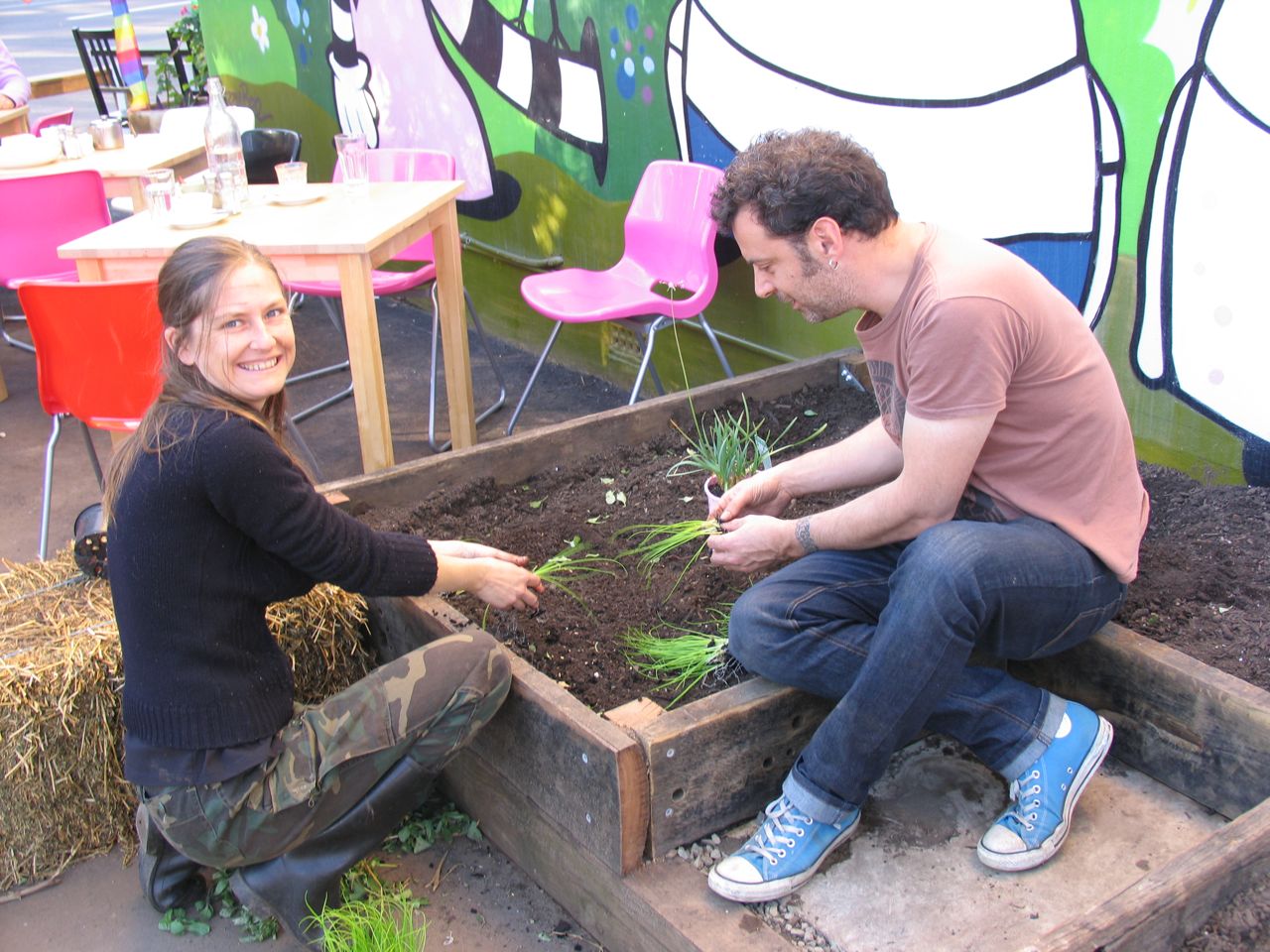


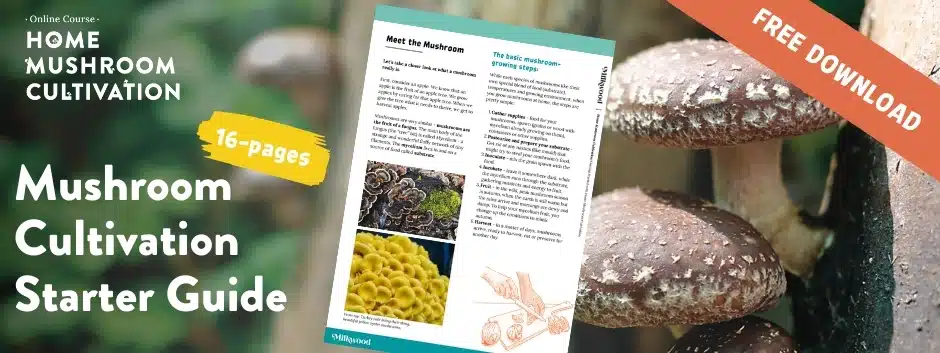









Hi, the link no longer works, it seems to go to a spammy site. Is there a way now to join Landshare? We have more land than we can manage at the moment, so would gladly share with others :).
Heya, yes you’re right – it seems to have carked it! Darn. There are quite a few landshare groups on Facebook now, but that’s all I can suggest? Good luck 🙂
Hello, the link takes you to a spam site. Could you please please the correct link? Thank you